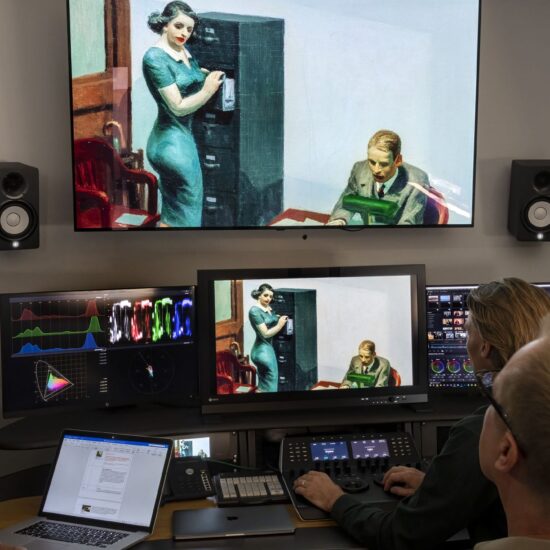
You’ve dug out the trendy wardrobe, got yourself a second hand pair of Raybans dirt cheap. Wow! And you’re sporting a trendy haircut and are ready to start faking your life as an independent film auteur. So what next? Can you handle the changing media patterns?
You make a list of the top 100 film festivals and attend as many as you can. You attend screenwriting class after class so you can talk the talk story structure with just about any cult film director. Conscious of your personal brand, you drop your new media phobia and have ‘liked’ the right people on Twitter and Facebook, and decided to have a go at independent filmmaking. And probably have a go without going to film school.
Then to the astonishment of your friends and family you make the ‘announcement’ that you are ditching your day job to follow your dreams. With your last pay check in the regular world you buy a digital camera and some suitably cool clothes.
What next?
If only it were that simple. The traditions of the film industry have become challenged by the new digital and social media world. Like the music and publishing industry, film has had to adapt to the post www.youtube.com world.
It’s all changing.
There are three ways that independent filmmakers can benefit from the changing patterns in media. Understand how the paradigms of the film industry have changed:
1. Define creativity
The corporates who have (until now) dominated the film industry with audience research fuelled by survey after survey. Hollywood only pushes the ‘Movie’ button when a product is created that can tick all the right buttons. European industry filmmakers too are falling into this trap, with audience development metrics driving creativity.
Hah! Phooey on that. What social media has done is to allow filmmakers to engage directly with audiences and learn first hand what people want.
The learning here? The filmmakers of today are far better placed to known what their audience wants and who the audience is than the overfed and over researched film industry moguls. These moguls are so disconnected from their audiences by layer after layer of audience development metrics – metrics that can be read any way an executive wants to justify another multi-million spend.
Independent filmmakers are directly connected to their audiences.
2. Marketing and publicity
The film industry has relied on massive marketing and advertising budgets to get their products out into the market place. This financial hurdle has been seen as a step too far and high for independent filmmakers.
Until now, that is.
Social media of course enables filmmakers to market directly to their audience. Filmmakers are able to build up a following of their fans, of people who are interested in their work and what they have to say.
Independent filmmaker use their social media skills in two ways. Filmmakers can market their end product to end users and increasingly savvy filmmakers are using social media to crowdfund and crowd source their movies in the development stage as well.
3. Storytelling Techniques
The traditional two hour cinema movie is very nearly dead. The movies of the future will start with the purchase of an app or game allowing viewers (or gamers) to build up a series of points or vouchers which they can then choose to cash in at the cinema box office, meaning that the cinema experience will become the penultimate point in an experience that last several days or weeks. The advantages of digital technology will allow for the multi-faceted story nodes, currently employed by the gaming industry, with off line experiences as well.
Don’t let any media type tell you that this is a new way of story-telling. It isn’t. Allowing an audience different access points to a story is as old as the hills. When I was a kid in Ontario’s farmland, I played pickup ball hockey wearing a Detroit Red Wings sweater with a number 9 on the back and I believed that I was ‘Mr Hockey’ Gordie Howe. Then I went indoors and listened to the game on radio.
Social media will also enable filmmakers and storytellers to work on stories together with their audiences. You can find out more about this in the new Raindance course: Self Branding for Screenwriters and Filmmakers
Fade Out
Are you trying to break into the film industry? Where does that leave you?
There is nothing difficult about the film industry. it is however, really hard work. The first thing you need to do is to master a craft or skill. This is what you are going to be known for. Secondly, it is a film business. Study and learn how money flows. Learn how to make the changing media patterns work for you and your career.
Thirdly, astute filmmakers use social awareness to raise their personal profile and build a community of admirers (and potential clients and customers). This delicate task of building yourself up is akin to marketeers who try and build up a product, only as an individual one needs to build a personal brand.
Building a personal brand involves excellence (as above) but also involves developing a strong individual voice as well as knowing how to engage in the fine art of self-promotion.
Fourthly you need to make great movies with storylines and concepts which are bold, fresh and original – stories that no one else has thought of before, and stories and films that everyone wants.
Finally, if you want to break into the film industry and call yourself a filmmaker, you have to make films instead of talking about making films. With today’s inexpensive filmmaking gear, anyone with something to say can say it.
Go forth and multiply














